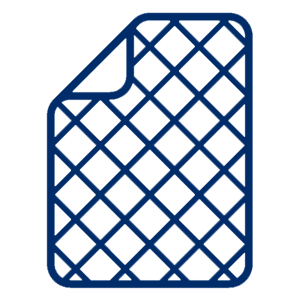FREE Standard Shipping On All Orders $100 or More!*

Pool Storm Prep - What To Do?!
With warmer temperatures nearing, the primary focus of pool owners is keeping their pool looking good and ready for summer fun. It's also the time of year to keep your eye on the sky and prepare for a storm.
Now is a great time to think through how to protect your pool, pool equipment, patio furniture, and accessories from rainstorms, hurricanes, thunderstorms, and other extreme weather heading your way.
Prep Your Pool for a Storm
The one positive about preparing your pool for a hurricane is that you typically have time to get everything in order. When it's a pop-up storm, as is common in most areas, you may not have as much time to prepare. Below is a step-by-step list to assist you in getting your pool and backyard prepared for a storm.
1. Shut Off Power to Pool
Just before a major storm hits, turn off the power to your pool equipment. Find the circuit breaker that feeds your pool electricity, and shut it off. This will help protect electrical equipment like your pool pump, timer, heater, and pool lights.
2. Protect from Flooding
If flooding or storm surges are a concern, you may want to unhook your pool pump and store it indoors or on higher ground. You can also shut down pump power and wrap the motor tightly with heavy plastic and duct tape to keep water out. If you have a heater or other large equipment to protect from flooding, build a low wall of sand bags around the pool equipment.
3. Don't Drain your Pool
Inground pools can succumb to hydro-static pressure in the ground, causing the pool shell or liner to lift up due to the saturated ground and rising water table. It's safe to drain about a foot of pool water to allow space for rain and run-off water. If you have an above ground pool, keeping it filled can prevent damage to the walls, and it won't be carried off like the house in "The Wizard of Oz."
4. Store your Gear
Protect your cherished pool accessories and outdoor furnishings. Make sure all pool accessories, like toys, pool cleaners, skimmer lids and even pool ladders, are secured in a safe place — like the garage, shed, or even inside the house. Securing your pool gear and furniture decreases the chance that these items will become dangerous flying projectiles.
If you don't have the time or place to store your pool and patio items, put them in the pool. Don't put anything with sharp edges into the water, especially if your pool has a vinyl liner. But plastic pieces, pool furniture, and even robotic pool cleaners, can be kept safe below the surface of your pool. Many resorts do exactly this when a hurricane bears down.
5. Don't Cover the Pool
If a storm is brewing, leaving your pool cover off could be better than putting it on in the first place. Strong storms often arrive with substantial winds, and these winds can take down tree branches and throw patio furniture and other debris around. Your pool cover will be ruined if a branch or other loose object lands on it and you'll have to buy a new one. On the other hand, if a patio chair or tree limb falls into the pool water, it likely won't cause much damage. In addition, strong winds can rip the pool cover right off your pool and send it soaring like a giant, expensive kite.
6. Watch the Weather
Tune in to your local weather forecasts, or use an app like WeatherBug for storm path and lightning strike tracking. Track the storm's path as it moves in close, and stay on top of any weather developments.
7. Prepare the Pool Water 
If severe storms are predicted in your area, chances are you won't be swimming much anyways. Take a bit of time to prepare the pool water for the possibility of not having filtration for several days. Test and balance the water chemistry, shock the pool, and add a large chlorine floater to keep the pool chlorinated. You can also over-filter the water by running the pump non-stop for a few days.
However, if there's a tornado approaching, let the pool fend for itself and head for cover. There's plenty of lost pool equipment and gear in the Land of Oz, but life and limb are more important than Wanda the Whale.
8. Shut Off Power to Equipment
Shutting off power is a good practice for any item that plugs into a wall or is expensive to replace. Power surges can destroy pool equipment like pumps and timers. The best way to protect these things from power surges and lightning is to interrupt the electrical current by unplugging them from the outlet or turning off circuit breakers.
9. Stay Safe
Taking shelter during a storm should always be your number 1 priority. If you find yourself huddled in the basement with all your family and pets, and you look up and see the electrical panel within reach, go ahead and flip the breakers to protect those expensive pieces of pool equipment.
Unlike hurricanes that can be predicted days in advance, severe thunderstorms pop up suddenly, and it can be difficult to forecast exactly where they will hit.
So what can you do to protect your pool and pool equipment from severe weather? The best thing to do is be alert, prepared and proactive.
There's no way to fully protect your pool, pool equipment, or accessories from out-of-control storms. Do yourself a favor and put your swimming pool on your home owner's insurance policy. This way, if a strong storm rolls through, you have a way to fix or replace the pool.